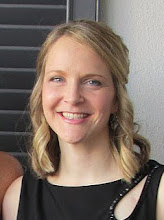As far as I know, the only time I was hospitalized in the first 28 years of my life was when I was born - not a bad ratio of years lived to hospitalizations. Of course we know that ratio began declining abruptly when I became sick in October of 2009. In those last three months of the year, I was hospitalized two or three times. I think I logged five hospital stays in 2010. If only airline miles could be applied to hospital bills...
I found myself in the hospital about every six months in 2011 and 2012, a strangely regular rhythm caused by unrelated events - I think two instances were for flu or flu-like symptoms, one was for rejection treatment and the most recent episode was the disaster of trying to switch from one immunosuppression medication to another. This last stay lasted a solid week; I went home on December 26, 2012.
When this past May and June rolled around, I started getting nervous. I didn't wonder when the next episode would strike, but what it would be. I think I remember having some symptoms of rejection around this time. Whenever that was, I was sure I was in rejection and would need to report to the ER to "check in" for treatment. I was astonished when my transplant team reported news of a normal echocardiogram and a negative heart biopsy. I kept nervous watch for symptoms of the flu or other abnormalities for the next several months, but none came.
I started counting the days in December, wondering with increasing anticipation if I could actually make it a full year without a hospital stay. I was so relieved when December 26 came and passed, with only a lingering head cold to show for it. And now, on the eve of the new year, I realize I went the entire calendar year of 2013 without spending a single anxiety-ridden night in the hospital.
I'd say that calls for a toast. Farewell, 2013. Wishing all of you a healthy and happy 2014!
On another note, please keep Ally "the Bionic Bride" in your thoughts. Her story began much the way mine did, only she was an 18-year-old freshman in college. She was healthy and active until a virus attacked her heart. She first had an LVAD (heart assist device) implanted, and she got a new heart very near the time of my transplant in 2010. She has just learned that she has severe cardiac allograft vasculopathy and needs to go back on the transplant list. This type of coronary artery disease is not terribly uncommon among heart transplant recipients, but I didn't realize it could strike as early as three years post-transplant. If you want to check out her story and/or send positive thoughts her way, her public Facebook page is https://www.facebook.com/pages/The-Bionic-Bride/119390961436414.
 |
| This is the People Magazine spread you may have seen. |






